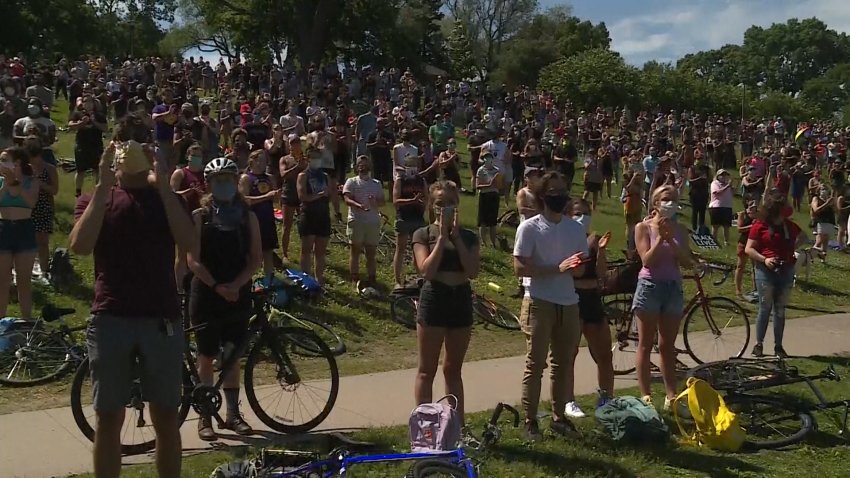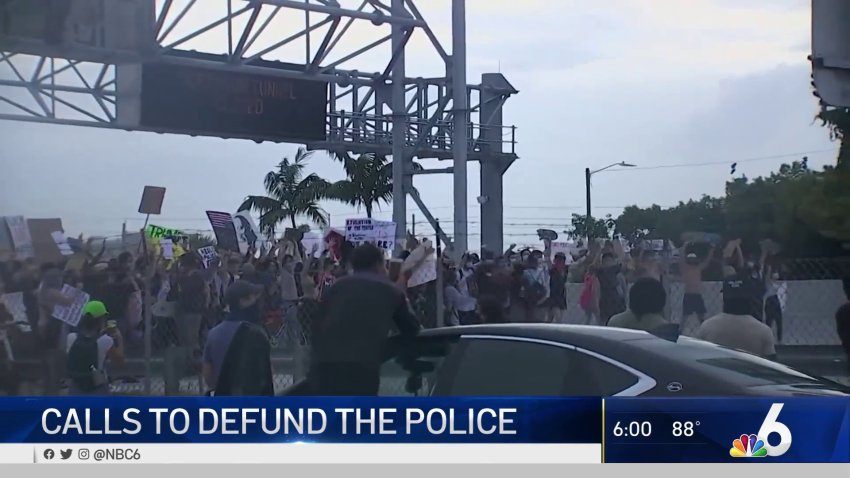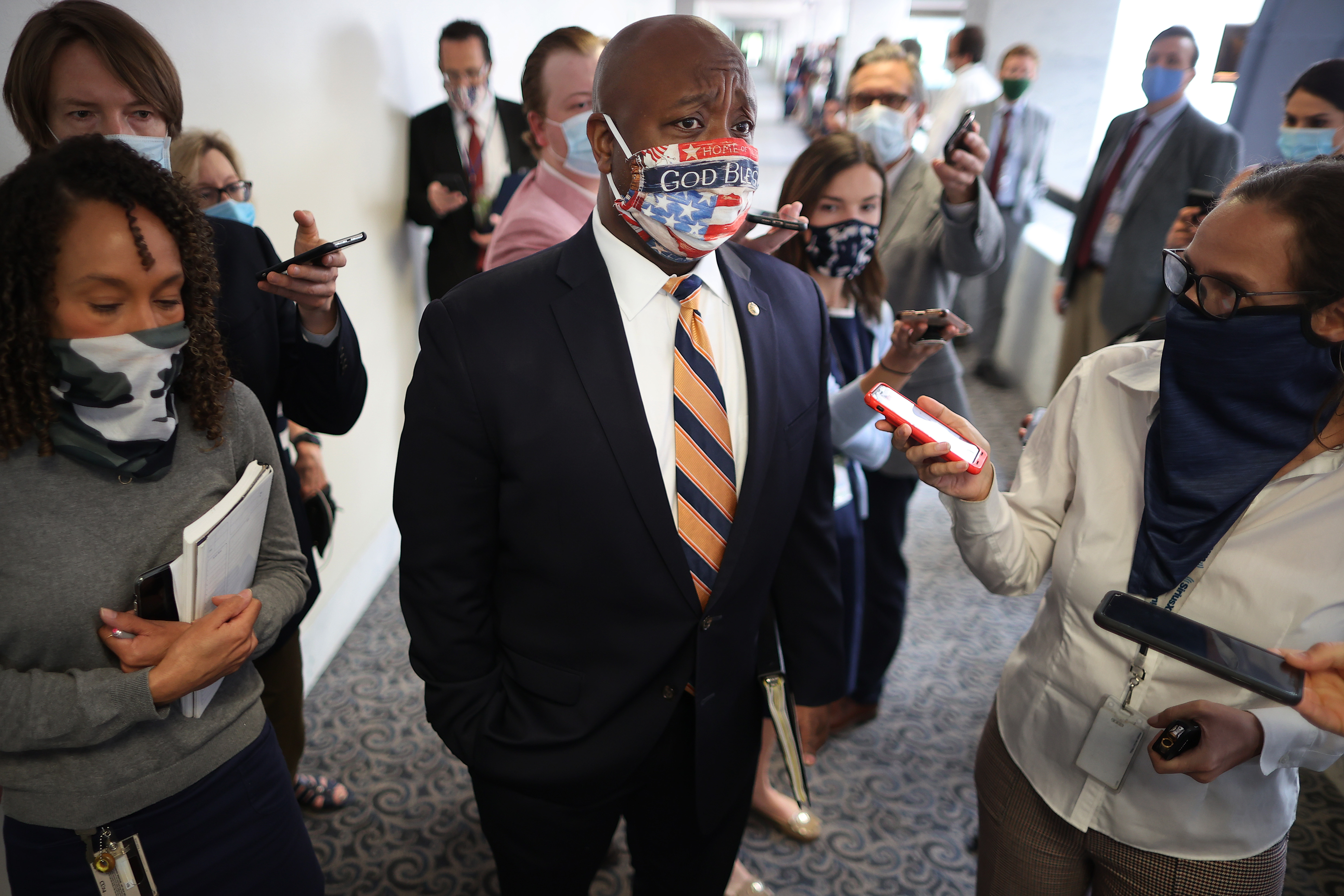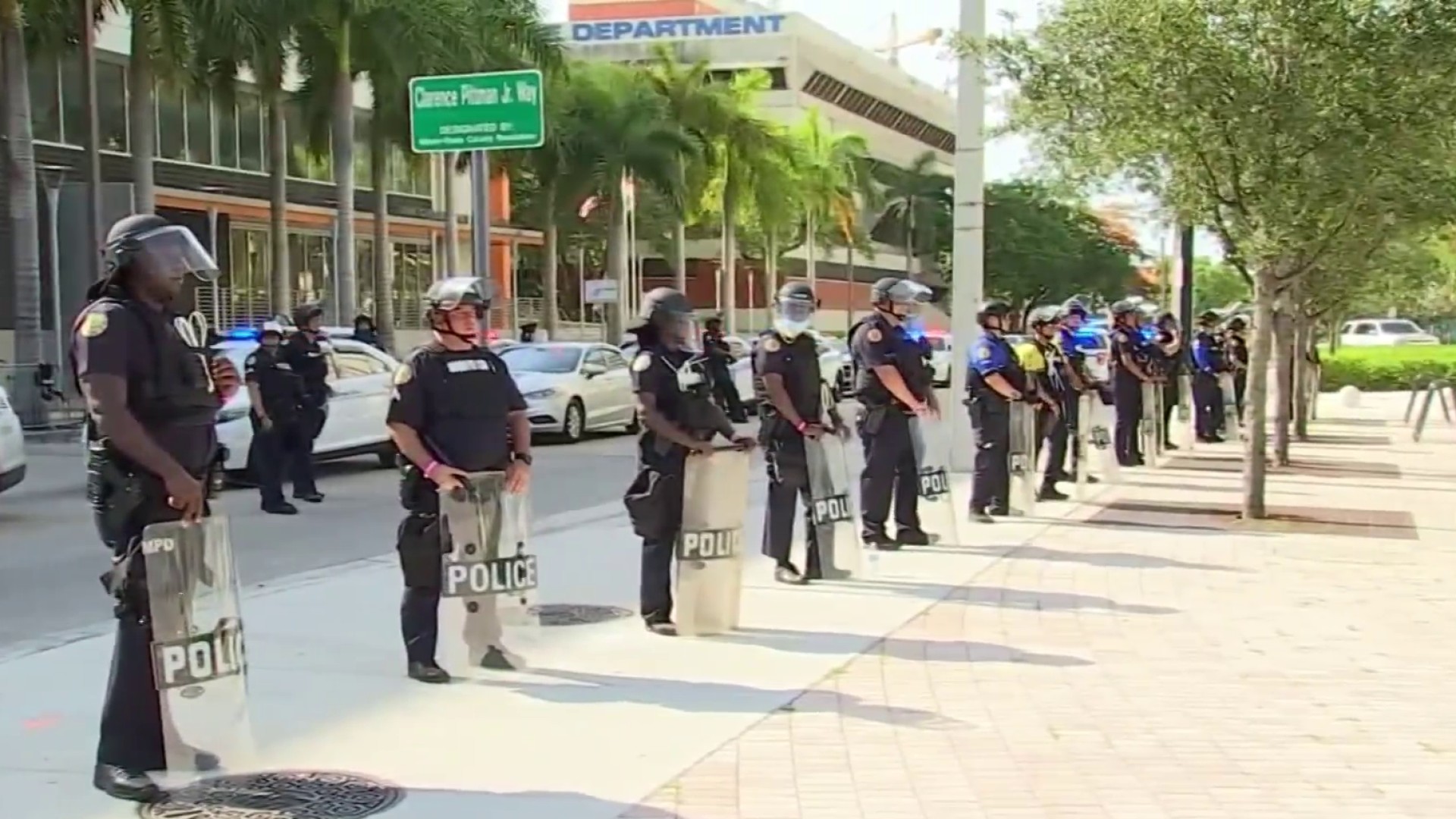Activists are calling to defund police departments, a demand that’s gotten the attention of some policymakers across the country. NBC 6’s Jamie Guirola reports.
For weeks, hundreds have marched the streets of South Florida in the wake of George Floyd's death.
They hope each step is one step closer to end social injustices and systemic racism.
They also are calling to defund police departments, a demand that's gotten the attention of some policymakers across the country.
"We invest so much into policing and not enough into actual communities," said Joseph Martinez, who has been on the front lines calling to defund police departments. "Defunding the police is also saying there are things more important than police in our community ... When we have underfunded public schools, when we have a lack of after-school programming."
In Miami-Dade County, 45% of the $2.2 billion general fund -- or $990 million --goes to police and the corrections system. In Miami, roughly $263 million goes to police -- that’s approximately 30% of the city’s $830 million operating budget
"When we’re asking to defund the police, it's with the understanding that there is a possibility to create real safety in our community," Martinez said.
But not all protesters share the same thinking.
"We have some people who advocate for the abolitionists movement. They completely want the abolition of police departments," said Jonathan Gartrelle, who has also been protesting the last few weeks. "And then there are other people who believe in reform."
"The major point is clear -- there needs to be a change in the way the laws are enforced and governed in this country," Gartrelle said. "So whether you tear down the department and start from scratch, whether you reform from within or defund, everyone is saying there needs to be a change."

In Miami, Mayor Francis Suarez said he supports reform, but not defunding.
"I understand what people want really is increased social programs," Suarez said. "They don't want police doing things they’re not equipped to do, like being a social worker and working on mental health issues."
Florida Congresswoman Debbie Mucarsel-Powell also says she doesn't support abolishing police departments.
"There is an underlying systemic racism among all police departments and we have to start by acknowledging that," Mucarsel-Powell said.

But the congresswoman has cosponsored a reform bill. The George Floyd Justice and Policing Act is expected to be voted on in the House this month.
"Which would ban chokeholds which would create a national database where you can track police misconduct, but it also asks for investments in community," Mucarsel-Powell said.
Depending who you ask, a step in the right direction -- with a lot more room for change.
"This is a longer discussion, this is a generational problem, institutional problem," Gartrelle said.



